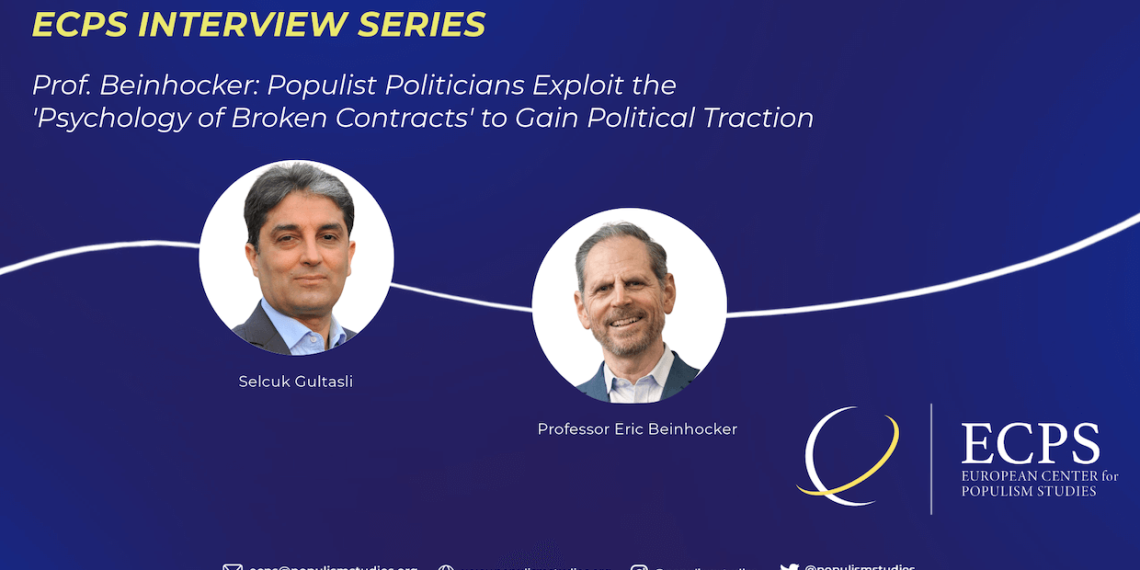In a time of rising populism, Professor Eric Beinhocker explains how populist leaders capitalize on economic grievances and social distrust to fuel their movements. “When people feel the system is unfair and rigged, they seek someone to blame,” he says, pointing out how populists exploit feelings of broken social contracts to gain political traction. According to him, trade wars and economic nationalism further exacerbate global instability. “No country can make an iPhone alone,” Professor Beinhocker states, stressing that interconnected supply chains make protectionism self-destructive. Tariffs and trade barriers, he warns, will “lower living standards and harm American competitiveness” rather than protect workers. This insightful discussion unpacks the economic forces fueling populism and the fragility of global trade.
Interview by Selcuk Gultasli
In an era of rising political polarization and populist movements across the globe, the erosion of trust in institutions has become a defining challenge for democracies. In an intriguing interview with the European Center for Populism Studies (ECPS), Dr. Eric Beinhocker, Executive Director of INET Oxford and Professor of Public Policy Practice at the Blavatnik School of Government, University of Oxford, discusses how populist politicians leverage the breakdown of the social contract to fuel political movements. He introduces the concept of the “psychology of broken contracts” as a key factor in the rise of populism, arguing that when people perceive a fundamental violation of fairness, “some of our strongest emotions arise from fairness violations,” leading to anger, resentment, and a desire to strike back—a phenomenon that populist leaders exploit.
According to Professor Beinhocker, the modern economy has undergone major shifts since the 1970s, particularly in Western democracies, where working-class citizens and those outside major metropolitan centers increasingly feel “the system isn’t working for them—that it is unfair, rigged, and benefits others at their expense.” He argues that these perceived injustices—whether economic or political—create fertile ground for populist rhetoric, which provides “a clear enemy,” often framed as elites, immigrants, or individuals outside of one’s identity group. Populist politicians, he explains, thrive on these grievances, “preying on and exploiting the psychology of broken contracts to gain political traction.”
A crucial factor accelerating this process, Professor Beinhocker contends, is the role of social media. While he does not see it as the primary cause of populism, he acknowledges its role in intensifying moral outrage. “Social media algorithms quickly identify that the content generating the most engagement is that which triggers moral outrage,” he explains, reinforcing tribal identities and making “resetting these emotions incredibly difficult.” Populist leaders capitalize on this dynamic, using divisive narratives to deepen distrust in institutions and erode democratic norms.
To counteract these trends, Professor Beinhocker suggests that restoring trust requires rebuilding fairness and re-establishing a strong social contract. He argues that past leadership, such as Franklin Roosevelt’s New Deal, demonstrated how governments can “reset the social contract” through economic reforms, symbolic policies, and direct engagement with public concerns. However, he warns that “merely talking about trust is not enough—people need to experience fairness and institutional accountability.”
This interview provides a thought-provoking analysis of the intersection between economic shifts, political trust, and the psychology of populism, offering essential insights for scholars, policymakers, and citizens alike.


